In the rapidly evolving realm of technology, the demand for proficient data scientists is soaring, making 2024 an opportune time to delve into this dynamic field. Whether you aspire to secure a data science job or embark on the journey to become a data scientist, honing practical skills through real-world projects is key. In this article, we’ll explore a unique blend of Kaggle machine-learning projects while shedding light on the strategies to carve your path into the world of data science in 2024.
Table of Contents
Unlocking Opportunities: How to Become Data Scientist in 2024
To enter your data science journey in 2024, it’s essential to master machine learning projects that align with industry demands. kaggle has announced this new opportunity to your doorsteps. Kaggle always arranges competitions for data science solutions throughout the year free of cost anyone can join that. The participants need to register and code on their online notebook framework to run their code test, and modify and submit out there easily.
Kaggle’s community comprises data scientists and machine learning enthusiasts hailing from diverse corners of the globe, each bringing a unique set of skills and backgrounds to the table. We firmly hold the belief that our community thrives, and the future of the field shines brighter, as we actively embrace and celebrate these differences.
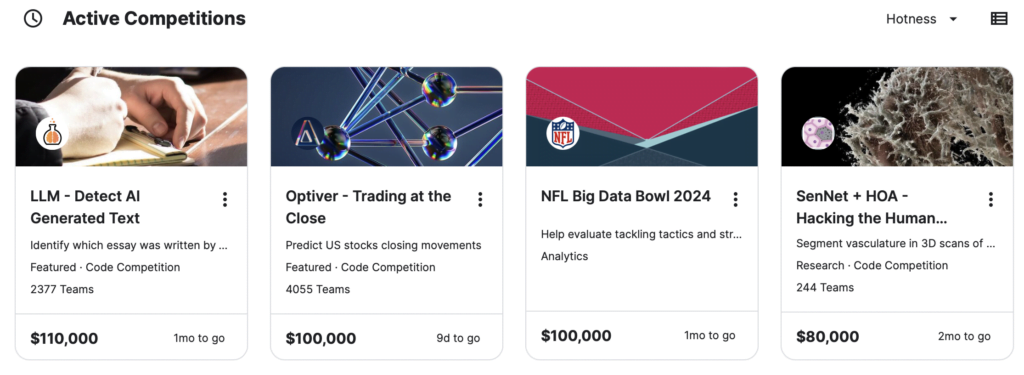

The information for the following 10 project types that can elevate you to the status of a data scientist in 2024 was sourced from www.analyticsinsight.net www.kdnuggets.com and www.kaggle.com.
Project Descriptions
Dog Breed Classification: Elevating Your Deep Learning Skills
How to Become a Data Scientist in 2024 through Dog Breed Classification?
In this engaging competition, participants are equipped with both a training set and a test set, each consisting of a diverse array of dog images. Each image is uniquely identified by its filename. The dataset encompasses an impressive collection of 120 different breeds of dogs. The primary objective of this competition is to develop a highly effective classifier with the ability to accurately identify and classify a dog’s breed based solely on a given photograph. It’s a captivating challenge that requires a keen understanding of image classification and machine-learning techniques to unravel the intricacies of canine diversity.
Start on your data science journey by signing up for Kaggle for free. If you’re familiar with Jupyter Notebook and Python, dive into a dog breed classification competition using the provided dataset. Utilize Python and TensorFlow, and submit your code. You can also test it independently on Google Colab. Achieving a high rating on your code could pave the way for your journey to becoming a data scientist.

Decoding the Impact of LLMs: Navigating the Essay Authentification Challenge
Stand Out in the Field of AI Detection and Secure a Data Science Job in 2024 with Kaggle.
Start on an exciting journey to the intricacies of AI detection in this Kaggle competition. We aim to encourage transparent research in the realm of AI detection techniques applicable to real-world scenarios.
Can you contribute to building a model capable of distinguishing between essays written by middle and high school students versus those generated by advanced language models (LLMs)? The dataset for this competition is a diverse mix of student-written essays and those crafted by various LLMs.
With the proliferation of LLMs, concerns have emerged about their potential to replace or alter tasks traditionally performed by humans. Educators, in particular, worry about the impact on students’ skill development. This competition addresses this apprehension by tasking participants with developing a model that can identify LLM-generated artefacts, contributing to the ongoing discourse on LLM impact.
As LLMs are trained on extensive datasets, generating text closely resembling human-written content, participants face the challenge of distinguishing between student and LLM-crafted essays. Your work on this competition can give the potential to uncover telltale signs of LLM influence and push the boundaries of LLM text detection. By working with texts of moderate length, spanning various subjects and utilizing multiple unknown generative models, we aim to replicate real-world detection scenarios and encourage feature development that transcends specific models.
Vanderbilt University, in collaboration with The Learning Agency Lab, an independent nonprofit based in Arizona, has partnered with Kaggle to bring you this forward-thinking competition. Your participation could not only unravel new facets of AI detection but also position you as a standout data scientist, equipped with the skills needed to excel in the dynamic landscape of 2024.
Timeline
- January 15, 2024 – Entry Deadline. You must accept the competition rules before this date to compete.
- January 15, 2024 – Team Merger Deadline. This is the last day participants may join or merge teams.
- January 22, 2024 – Final Submission Deadline. All deadlines are at 11:59 PM UTC on the corresponding day unless otherwise noted. The competition organizers reserve the right to update the contest timeline if they deem it necessary.
Prizes Declaration
- 1st Place – $20,000
- 2nd Place – $10,000
- 3rd Place – $8,000
- 4th Place – $7,000
- 5th – 7th Place(s) – $5,000 Efficiency Prizes
- 1st Place – $20,000
- 2nd Place – $10,000
- 3rd Place – $8,000
- 4th Place – $7,000
- 5th Place – $5,000
Don’t wait on this intellectual journey, where your contributions can redefine the landscape of AI detection and shape the future of data science. Register for the competition today and be part of a transformative experience in the world of artificial intelligence.

Dive into the NFL's Big Data Bowl 2024: Revolutionizing Tackling Strategy
Unlock Your Path to a Data Science Career in 2024 Through the NFL Big Data Bowl
The National Football League (NFL) is back with its iconic Big Data Bowl, challenging participants to leverage Next Gen Stats player tracking data and devise groundbreaking stats. This annual competition, known for its analysis of various football aspects, now zeroes in on the critical area of tackling.
American football, with its complexity, sees all 11 defenders focusing on one crucial task once an offensive player catches the ball—tackle the ball carrier. Simultaneously, the ball carrier’s objective is to advance down the field until tackled, scoring, or running out of bounds.
This year’s challenge presents a broad goal—create metrics that attribute value to elements of tackling. Utilize the NFL’s Next Gen Stats data from Weeks 1-9 of the 2022 season, including player location, speed, acceleration, and football location. Additionally, tap into PFF scouting data and NFL advanced stats like expected points and win probability.
Top winners not only seize cash prizes but also earn a chance to present their results to the NFL. The most impactful metrics or analyses may even influence NFL teams’ evaluations of their offensive and defensive players.
The challenge lies in deriving actionable insights from player-tracking data related to tackling. Examples include:
- Predictions of tackle time, probability, and location
- Tackle range metrics, encompassing angle of pursuit, speed, acceleration, and closing speed
- Player evaluation metrics, such as yards saved, tackle value, and missed tackles
- Credit assignment metrics, indicating how one player’s actions impact another, blocks shed, and area of influence
- Tackle type metrics, differentiating between solo vs. gang tackles, open field vs. in the trenches, and more
- Team and player roles and responsibilities, such as setting the edge and filling gaps
Participate in the Challenge
Choose from three submission tracks:
- Undergraduate track: Exclusively for groups or individuals composed entirely of undergraduate students.
- Metric track: Develop a metric to assess performance and/or strategy, focusing on offensive or defensive players, teams, or individuals.
- Coaching presentation track: Analyze and present data in a submission tailored for coaches.
Judging Criteria
Entries will be evaluated based on four components, each contributing to the overall score:
- Football Score (30%): Relevance to NFL teams, accounting for the complexities of football data, and uniqueness of ideas.
- Data Science Score (30%): Accuracy, data-backed claims, appropriate statistical models, and innovation in analytical applications.
- Report Score (20%): Quality of writing, ease of understanding, and clear definition of motivation.
- Data Visualization Score (20%): Accessibility, accuracy, and innovation in charts and tables.
The Roadmap and Prizes
The competition commenced on October 13, 2023, and the final submission deadline is January 8, 2024. The top five submissions will receive $12,500 each and an invitation to present at the 2024 NFL Scouting Combine, with a chance to win an additional $12,500. Submissions ranked 6th through 10th will each be rewarded with $5,000.
Seize this opportunity to unravel the intricacies of tackling strategy, make impactful contributions, and position yourself as a data science standout. Join the NFL Big Data Bowl and pave your way to a promising data science career in 2024.”
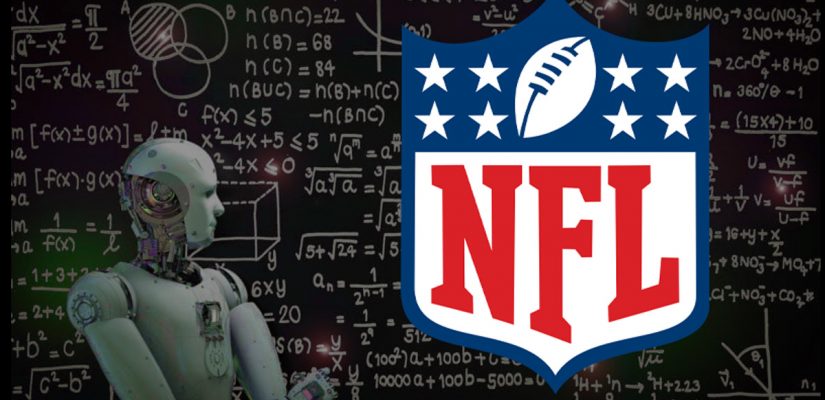
Revolutionizing Understanding: 3D Blood Vessel Segmentation Competition
Start on a transformative journey into the realm of medical imaging by participating in this extraordinary competition. The goal is to advance the segmentation of blood vessels using 3D Hierarchical Phase-Contrast Tomography (HiP-CT) data obtained from human kidneys. Your efforts will contribute to completing the Vasculature Common Coordinate Framework (VCCF), enhancing researchers’ understanding of blood vessel size, shape, branching angles, and patterning throughout the human body.
The Vasculature Common Coordinate Framework (VCCF) serves as a navigational system, mapping cells in the human body using blood vasculature. However, gaps in knowledge about the vasculature hinder the completeness of the VCCF. By automating the segmentation of vasculature arrangements through data science, your work can significantly reduce the manual effort currently required by expert annotators, who painstakingly trace vascular structures, a process taking over 6 months for each new dataset.
Hosted by the Common Fund’s Cellular Senescence Network (SenNet) Program and partnered with the Human Organ Atlas (HOA), this competition utilizes 3D multi-resolution imaging datasets created through Hierarchical Phase-Contrast Tomography (HiP-CT). These datasets, obtained from the world’s brightest synchrotron (European Synchrotron Radiation Facility), offer unprecedented insights into human anatomy, spanning from microns to entire intact organs.
Your contributions have the potential to revolutionize our understanding of the impact of vasculature on different cells in the human body. By generating better data, researchers can simulate the flow of blood, oxygen, or drugs through the vessel network. Your work may also aid in comprehending how blood vasculature changes with factors like sex, age, and BMI, paving the way for a more complete Vasculature Common Coordinate Framework (VCCF) and Human Reference Atlas (HRA). This, in turn, could unlock insights into how cellular relationships influence our health.
Timeline
- November 7, 2023 – Start Date.
- January 30, 2024 – Entry Deadline. You must accept the competition rules before this date to compete.
- January 30, 2024 – Team Merger Deadline. This is the last day participants may join or merge teams.
- February 6, 2024 – Final Submission Deadline. All deadlines are at 11:59 PM UTC on the corresponding day unless otherwise noted. The competition organizers reserve the right to update the contest timeline if they deem it necessary.
Prizes
- 1st Place – $25,000
- 2nd Place – $20,000
- 3rd Place – $15,000
- 4th Place – $10,000
- 5th Place – $10,000
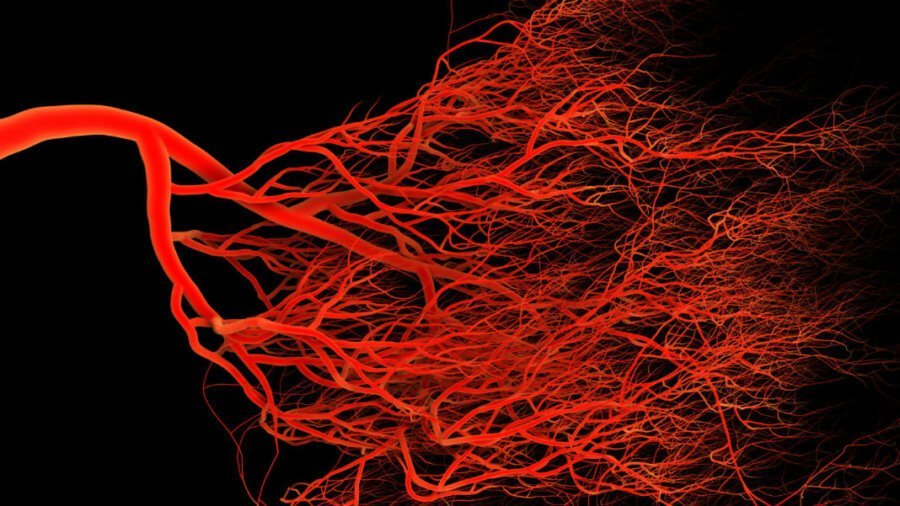
Unlock the secrets of writing excellence in the Keystroke Analysis Competition!
Your mission, should you choose to accept it, is to predict overall writing quality by delving into the fascinating world of keystroke logs. Vanderbilt University, in collaboration with The Learning Agency Lab, presents this opportunity for data scientists to explore the relationship between learners’ writing behaviours and writing performance.
In the intricate dance of the writing process, writers employ various techniques to plan, revise, and strategically allocate time. These subtle actions can significantly influence the quality of the final product, yet traditional assessments often overlook these nuances. In this competition, you’ll harness the power of data science to uncover key aspects of the writing process, using a large dataset of keystroke logs capturing writing process features.
Past research has touched on process features like pausing, additions, deletions, and revisions, but limited by small datasets and a narrow scope of studied features. Here’s your chance to expand the horizons of knowledge in this field.
Your efforts may revolutionize the understanding of how typing behaviour impacts writing quality, offering valuable insights for writing instruction, the development of automated writing evaluation techniques, and intelligent tutoring systems. By utilizing process features from keystroke log data, you have the opportunity to pioneer breakthroughs that direct learners’ attention to the text production process, enhancing their autonomy, metacognitive awareness, and self-regulation in writing.
Join the competition and showcase your data science skills to predict overall writing quality. Exciting prizes await the top performers: Leaderboard Prizes:
- 1st Place: $12,000
- 2nd Place: $8,000
- 3rd Place: $5,000
Efficiency Prizes:
- 1st Place: $15,000
- 2nd Place: $10,000
- 3rd Place: $5,000
Vanderbilt University, renowned for its commitment to cross-disciplinary research and global impact, invites you to be part of this transformative journey. Register today, and let the keystrokes pave the way to a new understanding of writing excellence!
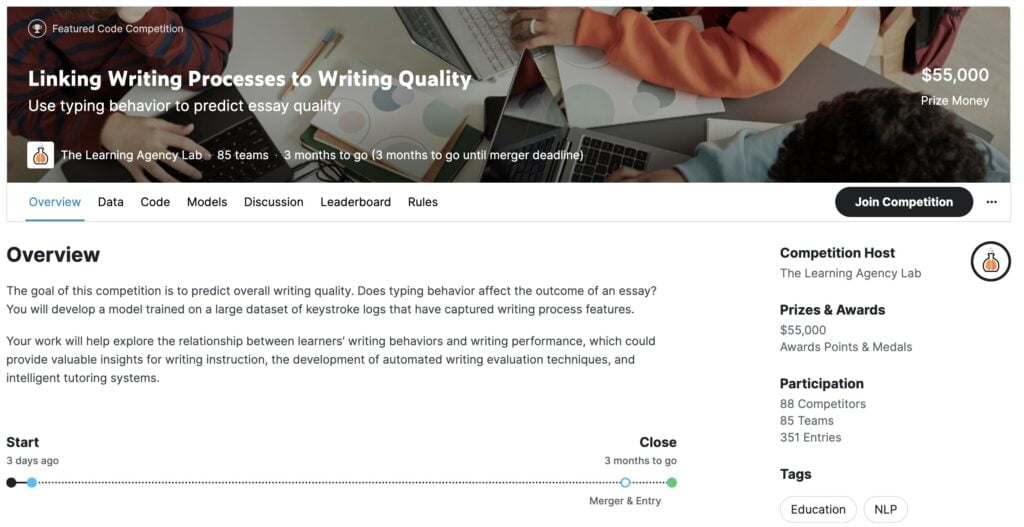
Dive into the Energy Prediction Challenge and revolutionize the future of energy consumption!
This competition, presented by Enefit, a leading energy company in the Baltic region, invites you to craft a cutting-edge energy prediction model for prosumers, aiming to mitigate the challenges of energy imbalance.
Energy imbalance occurs when the anticipated energy usage doesn’t align with the actual energy consumed or generated—a predicament exacerbated by prosumers, individuals who both consume and generate energy. Despite constituting a small fraction of energy consumers, prosumers’ unpredictable energy behaviour poses logistical and financial hurdles for energy companies. With the prosumer population on the rise, resolving energy imbalance is crucial to prevent increased operational costs, potential grid instability, and inefficient energy resource utilization.
The competition seeks to address these challenges by tapping into the expertise of the global data science community. By crafting accurate predictive models, participants have the opportunity to significantly reduce imbalance costs, enhance grid reliability, and foster the efficient integration of prosumers into the energy system. This, in turn, could incentivize more consumers to become prosumers, promoting sustainable renewable energy production and usage.
Enefit, at the forefront of the energy sector, is currently tackling the imbalance issue with internal predictive models and third-party forecasts. However, the accuracy of these methods in predicting prosumer behaviour remains a challenge. By leveraging the Kaggle platform, Enefit aims to harness the diverse skill sets and innovative approaches of the world’s best data scientists to enhance prediction accuracy and, consequently, reduce imbalance costs.
Don’t miss the chance to contribute to a sustainable energy future and showcase your data science prowess. Exciting prizes await the top performers:
- 1st Place: $15,000
- 2nd Place: $10,000
- 3rd Place: $8,000
- 4th Place: $7,000
- 5th Place: $5,000
- 6th Place: $5,000
Join the Energy Prediction Challenge, where your insights can pave the way for a more efficient, reliable, and sustainable energy landscape. Register now and be part of the solution!
Competition End Date: April 30, 2024.

The perfect starting point for your machine learning journey!
Get ready for the legendary Titanic ML competition, an excellent introduction to ML challenges and a chance to familiarize yourself with Kaggle’s platform. Join our Discord community for discussions on competitions, job postings, resources, and networking with fellow data scientists. Click on the following link to join: https://discord.gg/kaggle.
The task is straightforward: leverage machine learning to build a model predicting the survival of passengers in the infamous Titanic shipwreck.
The Titanic’s sinking in 1912 is one of history’s most notorious shipwrecks. During its maiden voyage, the supposedly ‘unsinkable’ RMS Titanic collided with an iceberg, resulting in the tragic loss of 1502 lives out of 2224 passengers and crew due to a shortage of lifeboats.
Your challenge is to create a predictive model that answers the question: ‘What types of people were more likely to survive?’ You’ll utilize passenger data, including details like name, age, gender, socio-economic class, and more.
Here’s an overview of how Kaggle’s competitions work:
- Join the Competition: Read the challenge description, accept the rules, and access the competition dataset.
- Get to Work: Download the data, build models locally or on Kaggle Notebooks, and generate a prediction file.
- Make a Submission: Upload your prediction to Kaggle and receive an accuracy score.
- Check the Leaderboard: See how your model ranks against other Kagglers.
- Improve Your Score: Explore the discussion forum for tutorials and insights to enhance your model.
You’ll work with two datasets: ‘train.csv’ with details of a subset of passengers, including the ‘ground truth’ on survival, and ‘test.csv’ with similar information but without disclosed outcomes. Your task is to predict the survival outcomes for the 418 passengers in ‘test.csv’ using patterns identified in ‘train.csv.’
Visit the ‘Data’ tab to explore the datasets further. Once confident in your model, submit it to Kaggle and see where you stand on the leaderboard.
Join the Titanic ML competition, chart your course in machine learning, and let the challenge begin! Click ‘Join Competition’ to create your account and access the competition data. Happy sailing!
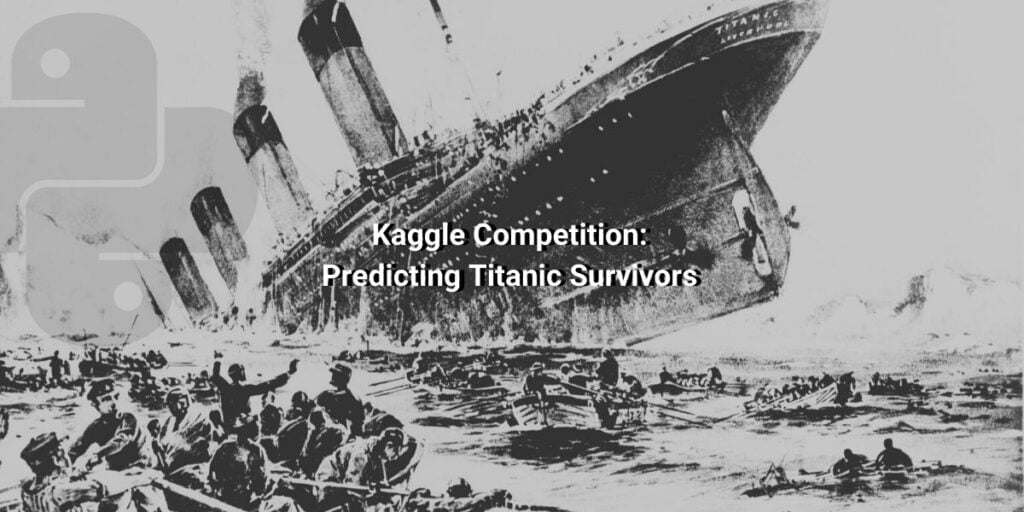
Final Guide to Becoming a Data Scientist in 2024
In the dynamic landscape of data science, aspiring individuals seeking to become data scientists in 2024 have a myriad of opportunities to showcase their skills and expertise through various Kaggle competitions. Let’s embark on a journey through the details of several competitions, exploring the diverse challenges they present and the invaluable experience they offer to those aspiring to enter the field.
1. Kaggle Community and Dog Breed Classification: Elevating Deep Learning Skills
- Join Kaggle for free and showcase your skills in Python, TensorFlow, and image classification.
- Participate in the Dog Breed Classification competition using the Stanford Dogs Dataset.
- Utilize Google Colab to test and submit your code, with the potential to earn a high rating and step into the realm of data science.
2. AI Detection and Essay Identification: Unraveling the Impact of LLMs
- Tackle the challenge of distinguishing between essays written by students and those generated by large language models (LLMs).
- Contribute to AI detection techniques by identifying LLM artifacts, and addressing concerns about plagiarism.
- Collaborate with Vanderbilt University and The Learning Agency Lab to advance the state of the art in LLM text detection.
3. Big Data Bowl 2024: Tackling Metrics in American Football
- Dive into the world of sports analytics with the NFL’s Big Data Bowl, focusing on tackling metrics.
- Develop innovative metrics for assessing performance and strategy in tackling plays.
- Present your results to NFL teams and potentially win additional prizes, showcasing your data science skills in a real-world context.
4. Blood Vessel Segmentation: Enhancing Understanding of Human Vasculature
- Contribute to medical research by segmenting blood vessels using 3D Hierarchical Phase-Contrast Tomography (HiP-CT) data.
- Work with datasets from the Cellular Senescence Network (SenNet) and the Human Organ Atlas (HOA).
- Improve understanding of vasculature effects on different cells, potentially impacting health research.
5. Predicting Writing Quality: Unlocking Insights from Keystroke Logs
- Delve into the writing process by predicting overall writing quality based on keystroke logs.
- Explore the relationship between writing behaviours and performance, offering insights for writing instruction and evaluation techniques.
- Contribute to research aimed at directing attention to the text production process and enhancing learners’ autonomy in writing.
6. Enefit Energy Prediction: Addressing Energy Imbalance with Prosumer Models
- Tackle the issue of energy imbalance caused by prosumers, who both consume and generate energy.
- Develop predictive models to reduce energy imbalance costs and improve grid reliability.
- Collaborate with Enefit to leverage data science expertise and novel approaches in solving real-world energy challenges.
7. Titanic ML Competition: Setting Sail in the World of Machine Learning
- Begin your ML journey with the iconic Titanic ML competition, a Kaggle classic.
- Use machine learning to predict passenger survival outcomes in the historic Titanic shipwreck.
- Learn and showcase your skills through a step-by-step tutorial, gaining experience and confidence in ML competitions.

Data Science in 2024
As we dictated the seas of data science competitions in 2024, the key to becoming a data scientist lies in active participation, continuous learning, and hands-on experience. Joining Kaggle and engaging in diverse competitions not only hones technical skills but also fosters problem-solving abilities and collaboration with global experts. Whether it’s image classification, AI detection, sports analytics, medical imaging, or energy prediction, each competition contributes to a well-rounded skill set. By embracing these opportunities, aspiring data scientists can steer their careers towards success, leveraging real-world challenges to stay at the forefront of the ever-evolving field of data science. Be a Happy Happy Kaggler and earn as a data scientist!
For more latest and trendy news please visit our latest news page.
To contact us please visit our Contact Us page located in the footer menu. For various needy offers and deals of the day you can check out our Best Deals page. To know more about us visit the About Us page in the footer menu. You can also read our Disclaimer, Affiliate Disclosure and FAQs page located in the footer menu. You can also find the Webstory Page in the footer menu to see our latest published web stories.

